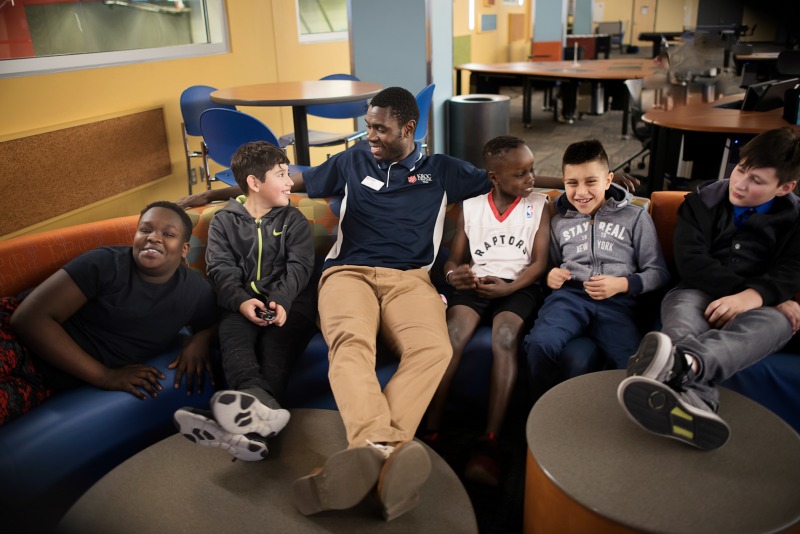Haji's Story: The Kroc Center Offered a Safe Place for Me to Be a Kid

Haji Salad was only 6 when he and his family moved from the Kenyan refugee camp where he was born to Hartford, Connecticut. By the time he moved to South Omaha when he was 10, Haji spoke English fluently, but life for him and his family was still challenging.
“There were 12 of us in one apartment, so it was pretty crowded,” said Haji, who lived with his parents, siblings and cousins. “We shared beds, but we all get along well and are close, so it was okay.” Haji’s father, who first worked as a translator at a hospital and is now employed with the Omaha Housing Authority, urged his children to concentrate on school, but it was difficult for Haji and his siblings to stay focused on their studies.
“A lot of kids in the neighborhood and at school were a bad influence, so my father basically locked us in the house all day,” said Haji. That all changed when Haji’s father learned about the Kroc Center. He registered his children and their cousins for memberships, and from that moment on they were there from sunrise to sundown. “I wouldn’t be where I am right now if my dad hadn’t gotten me involved with the Kroc Center,” Haji acknowledged.
Haji and his siblings and cousins enrolled in soccer, basketball and other youth development activities at the Kroc Center. After graduating from South High Magnet School in Omaha, Haji became the first person in his family to attend college. He attends the University of Nebraska at Omaha and is the recipient of a scholarship from the Susan Thompson Buffett Foundation. His goal is to earn his degree, land a good job, help his parents and assist his relatives still in Kenya.
When he’s not taking psychology and sociology courses, Haji works as a youth mentor at the Kroc Center. “I love just hanging out and laughing with the kids,” he said. “When they come in they are excited to see me, and I’m excited to see them.”
“The reason I’m a youth mentor is because it’s a way for me to give back to The Salvation Army for what they provided for my family,” said Haji. “It’s a way for me to give back to my community.”
